Shedding is normal for pets like dogs to get rid of old, unwanted, damaged hair.
Pets shed more often during the spring to lighten their outer coat in summer and fall to prepare for winter with a warmer new undercoat.
However, it may become concerning if you notice your pet has more excessive hair loss than usual and is developing bald spots on the body parts.
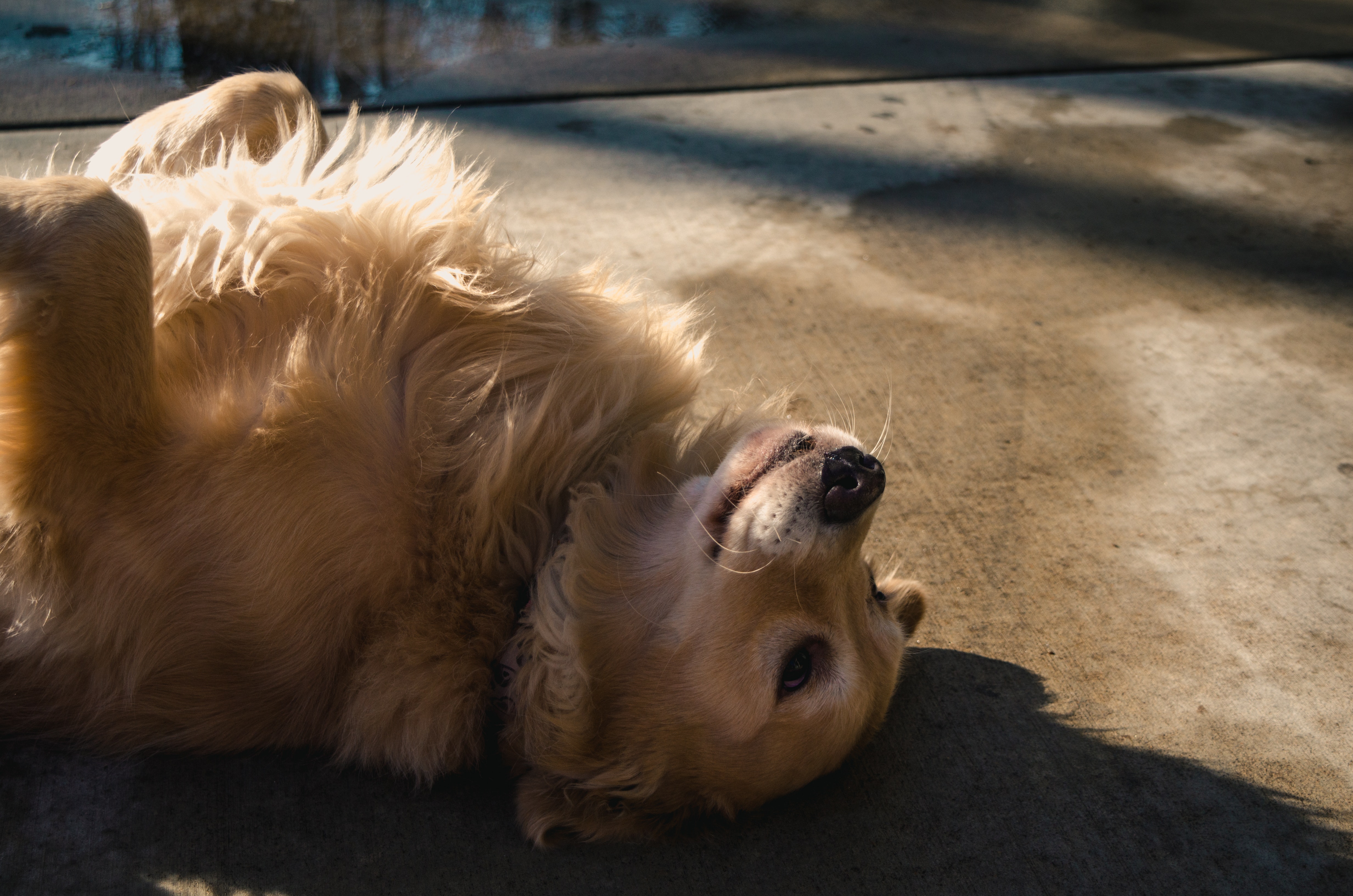
There is a good chance your pet suffers from canine alopecia, which warrants proper attention and care.
You can prevent hair loss in pets by creating a stress-free environment, feeding a nutritional diet, grooming your pet regularly, keeping an eye out for allergens, and conducting laboratory tests.
Doing so will not only help eliminate hair loss but will also help ensure your pet remains healthy and content.
Read on to learn what can be done to prevent hair loss in pets.
Tips to Prevent Hair Loss in Pets
Approximately 25% of veterinarian visits account for skin and hair coat issues.
While shedding is normal, excessive hair loss is not. So whatever is causing your pet's excessive hair loss, you must prevent it as quickly as possible.
Let’s check out the ways to stop pet hair fall.
1. Create a Stress-free Environment
Stress or anxiety can majorly trigger your pet’s health issues, including hair loss.
They begin to chew on its skin in response to the stress they are experiencing, leading to hair falling out.
In addition, a high level of stress in a pet releases epinephrine, also known as adrenaline releases the hair.
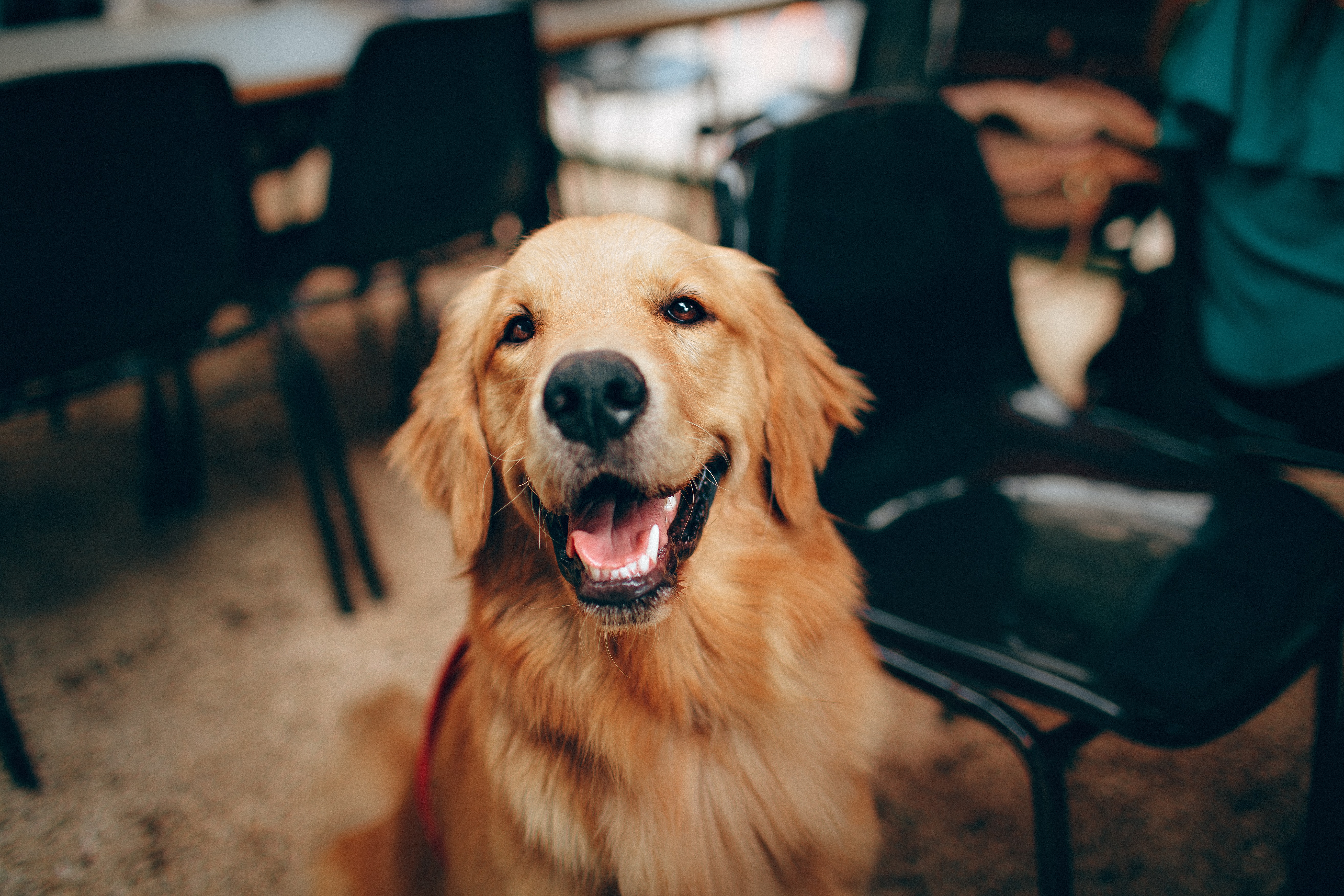
Therefore, you must relieve your pet from any sort of anxiety or stress.
- Spare some free time to play with your pet.
- Keep your pet engaged with treats, chews, and interactive toys to keep them engaged and occupied.
- Show them love and affection, and never make them feel lonely.
- Take them for a walk, hikes, and jogs to keep your pet healthy and fit.
- Create a safe place for your pets where they can relax and feel safe.
2. Feed Nutritious Diet
Nothing has a greater impact on the condition of your pet's coat than its diet.
Like humans, pets need a strong immune system to improve their hair health, which is ensured by a proper nutritional diet.
Excessive hair loss could signify your dog is not getting all the nutrients it needs from its current diet.
- The adult dog’s protein level should be 25-30% on a dry matter basis, and fat should be 10-15% on a dry matter basis. Feeding your pet food containing protein, Omega-3, and Omega-6 fatty acids greatly benefits your pet by improving their skin and coat to reduce hair loss.
- Make sure your pet drinks enough water to help prevent dehydration-related shedding.
- Regularly consult your vet to ensure that your pet is getting enough diet to prevent hair loss and maintain a healthy coat.
- Also, adding nutrient supplements to their regular diet can do wonders in helping to keep your pet’s coat healthy.
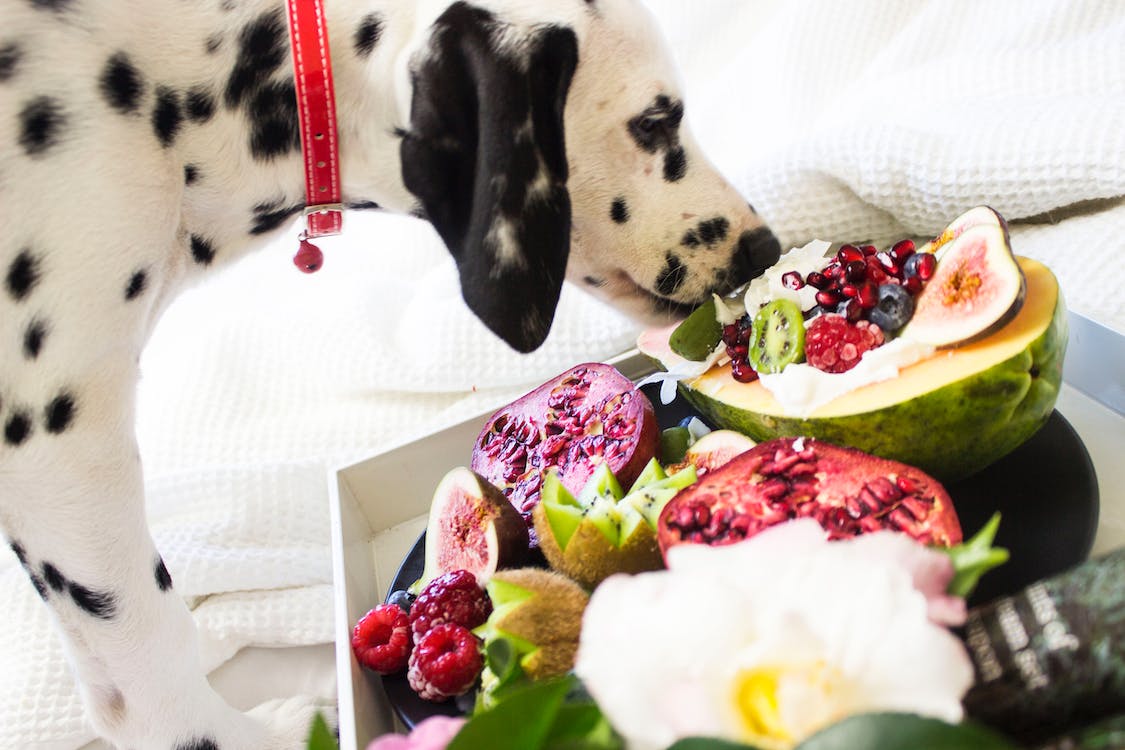
Doing this will support your pet’s immune system as well as protect his skin and coat.
Check this infographics for more information.
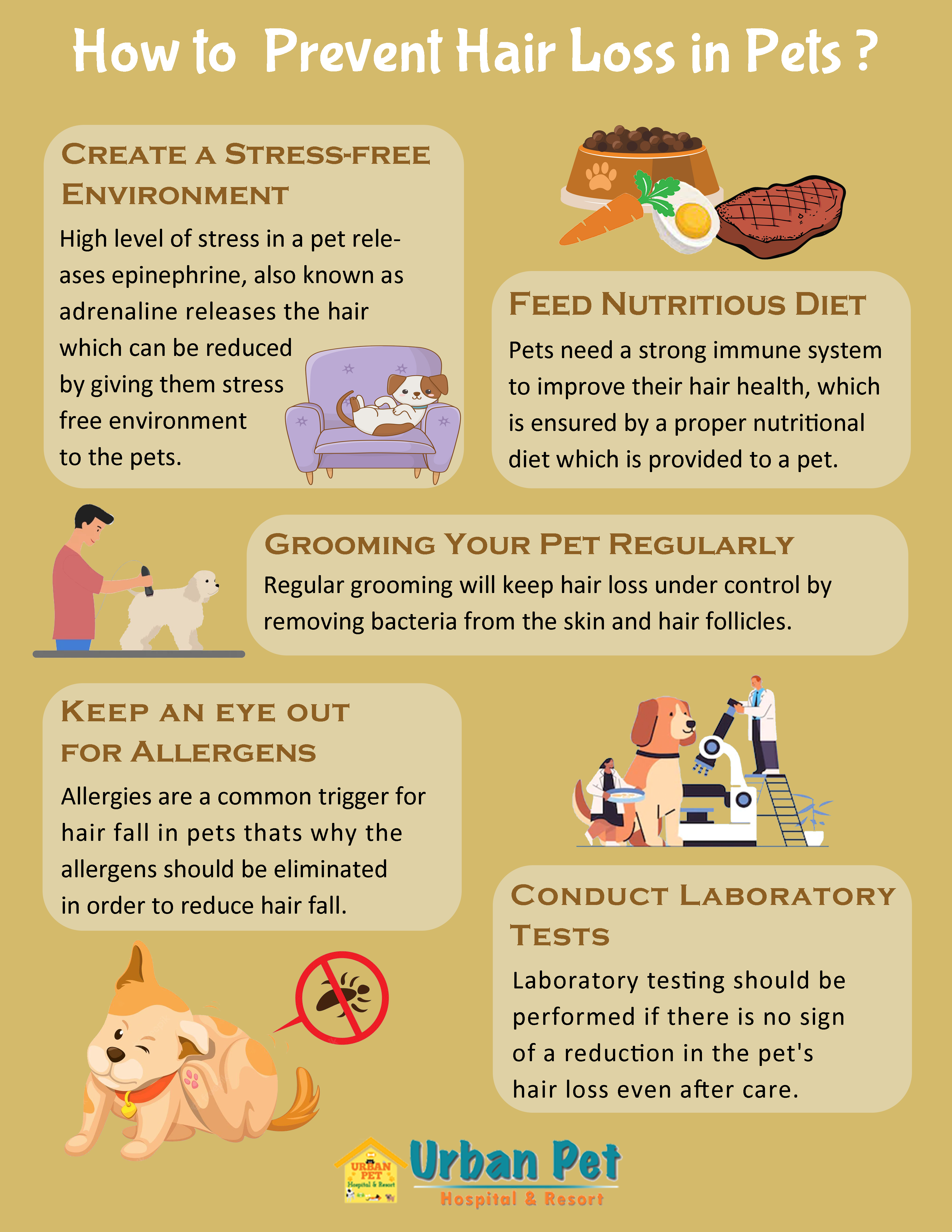
3. Grooming Your Pet Regularly
Regular grooming will do wonders at keeping hair loss under control by removing bacteria from the skin and hair follicles.
It makes your pet’s fur softer, cleaner, and less likely to fall.
Here are the ways to groom your pet.
- Wash your pet’s fur using De-shedding shampoo.
- Brush your pet’s fur regularly with the vet’s recommended pet comb or brush.
- Trim your pet’s overgrown fur.
- Trim their nail to avoid scratching their skin.
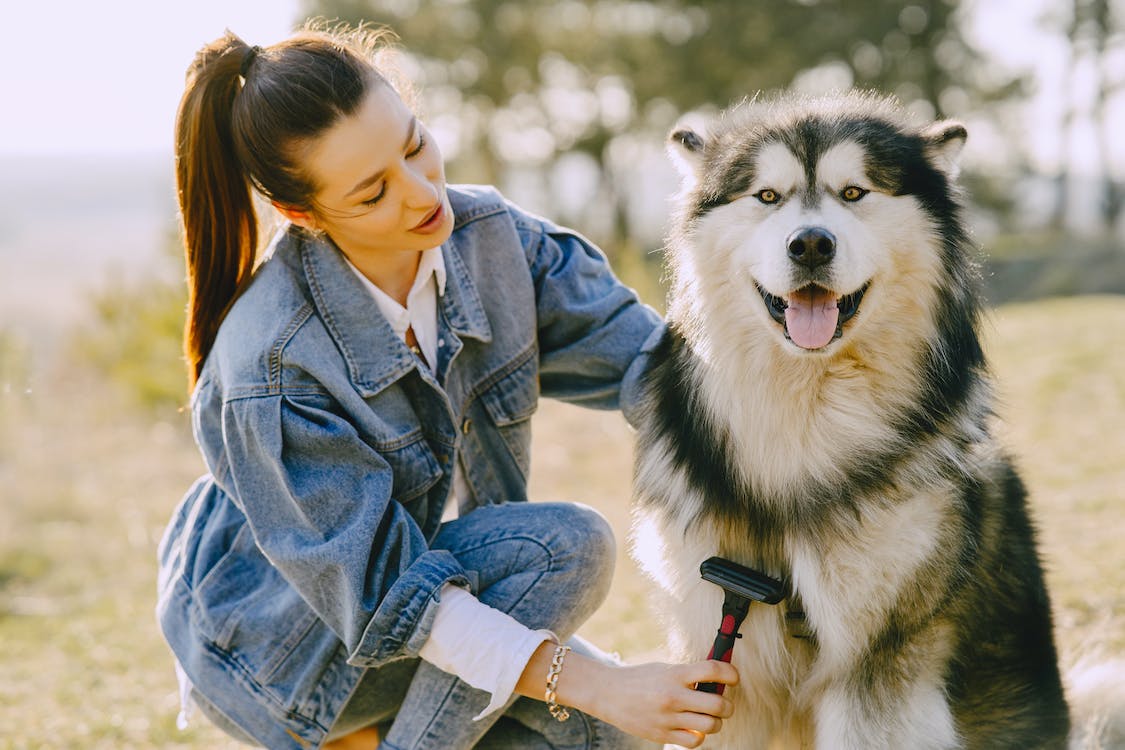
Doing so will help generate the natural oils from their skin onto hair; the natural oil helps create a healthy barrier that can help their coat stay strong and prevent hair loss.
Besides, it also gives you the opportunity to check your pet’s new bumps, parasites, or dry skin.
4. Keep an eye out for Allergens
Allergies are a common trigger for hair fall in pets. It is estimated that more than 70% of skin conditions in dogs, including hair loss, are due to allergies.
Like us, pets can have an allergic reaction to certain foods, dirt, mold, or parasites like fleas or mites.
These can create hot spots, patchy hair loss, chronic inflammation, skin itchiness, and scratchiness. The more your canine scratches, the more hair will be pulled from its coat resulting in hair loss.
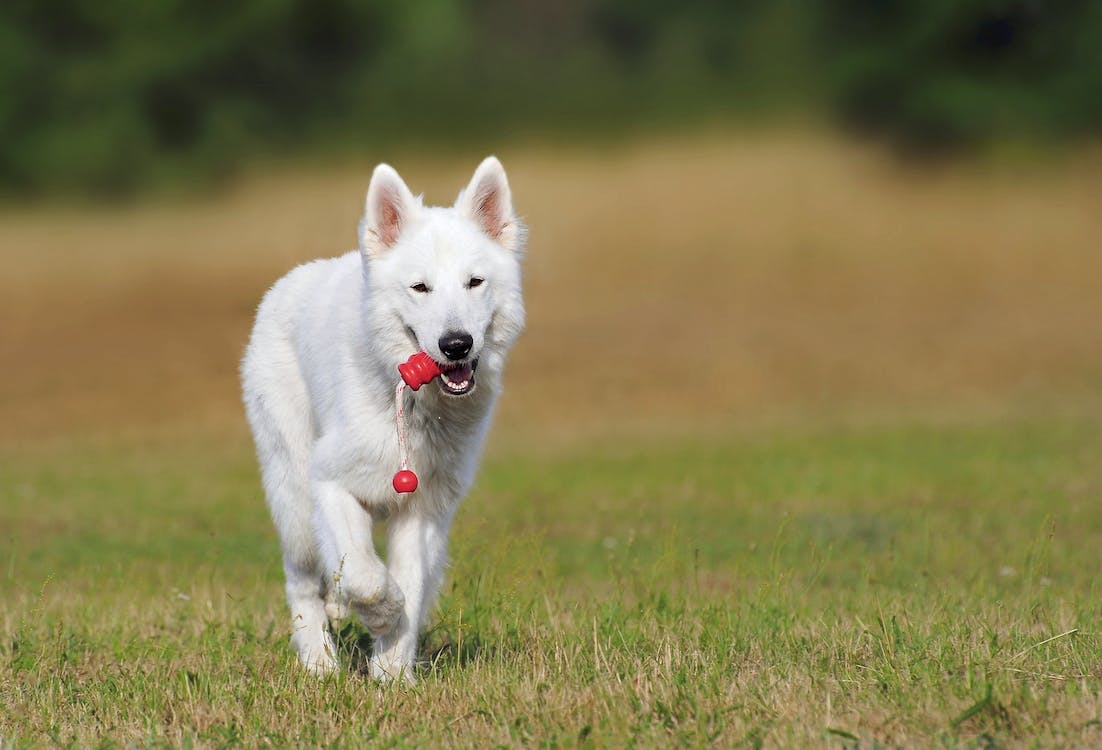
Therefore, if you witness your pet scratching itself unnecessarily, it is recommended to start proper allergy treatment.
- Provide flea and parasite control medication to your pet.
- Bath your pet with special shampoos to rule out allergies and control hair loss.
- Use insecticides to remove fleas.
- Identify the foods your pet is allergic to and avoid feeding those foods.
- Keep their shelter and surroundings clean and hygienic to remove dirt, mold, and fleas.
5. Conduct Laboratory Tests
Laboratory testing should be performed if there is no sign of a reduction in the pet's hair loss despite regular care and nutritional food.
The causes of hair loss in pets range from the basic to the most complicated health challenges.
Besides, successful treatment of your pet’s hair loss depends on correctly identifying the underlying cause leading to a specific diagnosis.
Therefore, consult your veterinarian about it and conduct laboratory tests to determine the cause of hair loss.
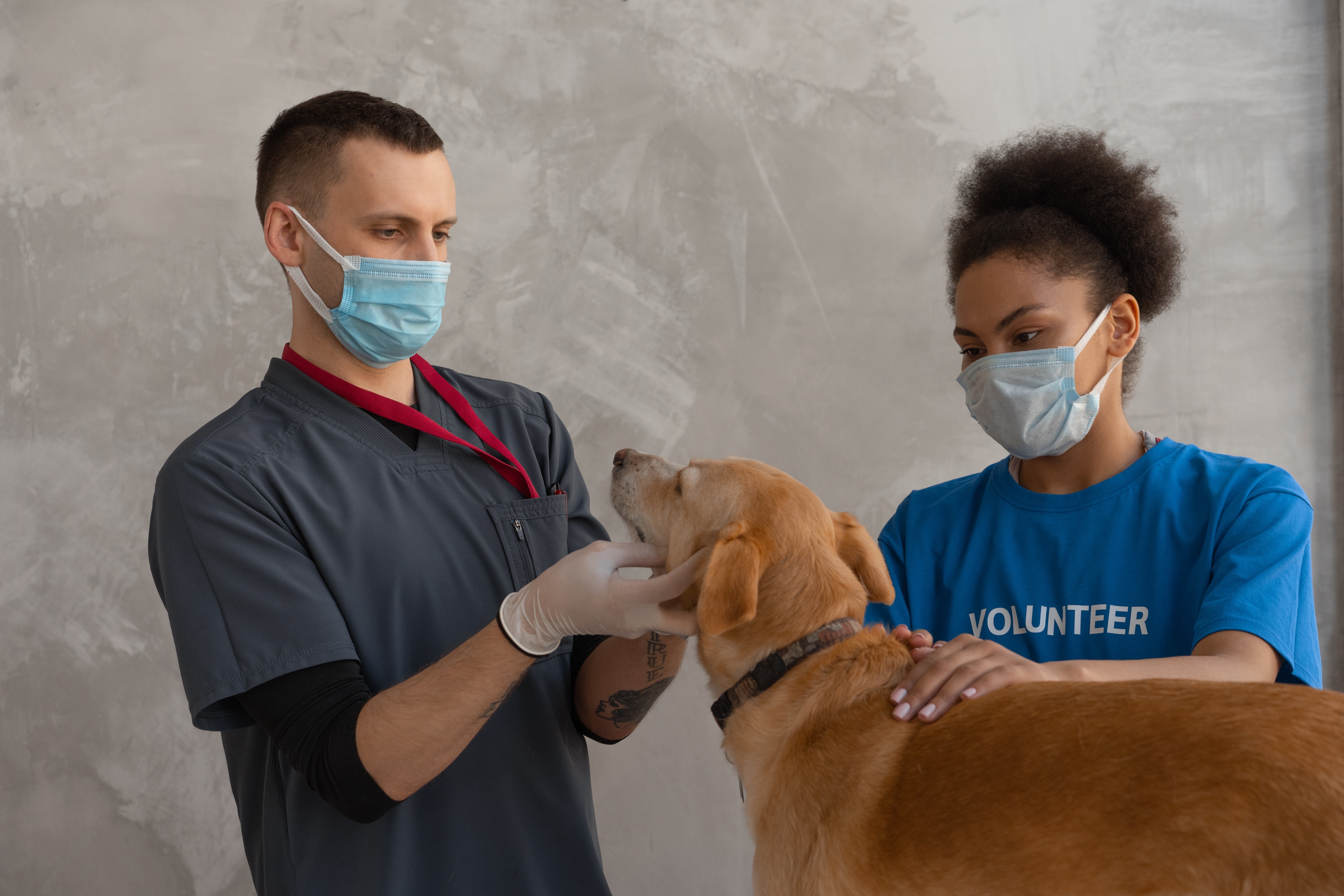
- A biopsy of the hairless area may be performed to confirm hair loss due to parasites, cancers, or other health issues, including blood or urine tests to check out hormonal disorders.
- If vets find hormones responsible for alopecia, they will give a hormone treatment to your pet.
- Wood’s lamp test to detect some occurrences of ringworm infection.
- Avoid feeding prescribed food for 6 to 12 weeks to test for a food allergy.
- An ultrasound and x-rays to look for signs of cancer.
After these tests, your vet will recommend effective treatment options such as medication, topical shampoos, sprays to combat fungal and bacterial infections, antibiotics, as well as hormone therapy if needed.
Conclusion
By following these above tips, you should be able to prevent hair loss in your pets.
Besides, always consult your vet before making any dietary or medication changes for your pets.
Get in touch with Urban Pet Hospital & Resort, the best pet hospital in Urbandale, to learn more.